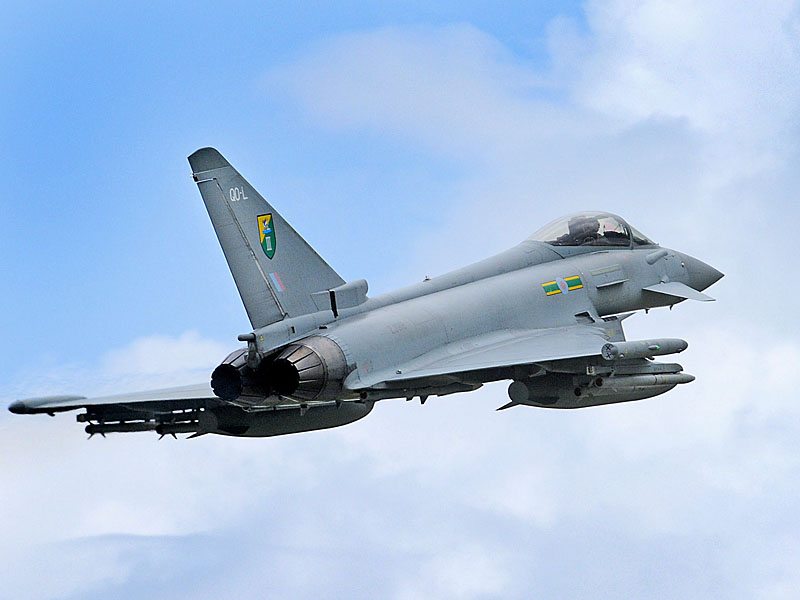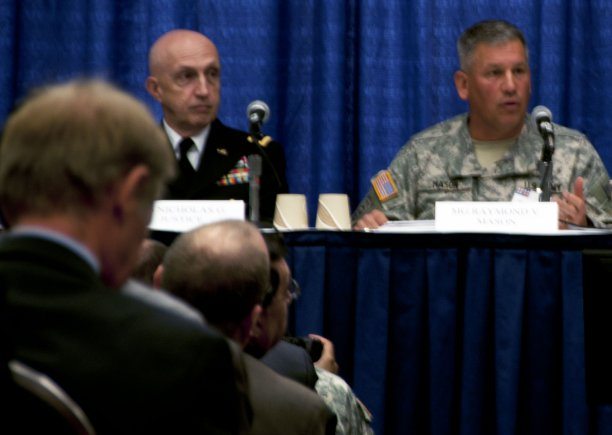US and Italian defense chiefs on Monday said they examined prospects for ending the allied air campaign over Libya and how to support the country’s post-Kadhafi transition in talks at the Pentagon.
Defense Secretary Leon Panetta, who expressed thanks for Italy’s role in the NATO-led operation, said alliance commanders favored pressing on with bombing raids as Moamer Kadhafi’s loyalists were still putting up resistance in Sirte.
“We are looking for our commanders to… recommend when they believe that the mission comes to an end,” Panetta told reporters after meeting his Italian counterpart, Ignazio La Russa.
“As you know, there’s still fighting going on in Sirte. And as long as that continues to be the case, our commanders feel the need for us to maintain our presence.”
The Italian defense minister said that both countries shared the same view on the campaign in Libya, launched in March to protect civilians from Kadhafi’s forces.
“We have assessed to help the transition in Libya and what to do when the combat in Sirte will be over,” he said, according to a translation.
NATO officials have said the alliance would consider providing security assistance and advice to the new leadership in Libya but no such request has been made so far.
Sirte is a key goal for Libya’s new leaders who have said they will not proclaim the country’s liberation and begin preparing for the transition to an elected government until the city has fallen.
NATO’s six-month bombing campaign gave a decisive boost to a loose alliance of fighters that toppled Kadhafi’s regime, forcing the deposed dictator into hiding.
The conflict has raised fears in Western capitals that a plethora of shoulder-fired missiles in Libya could fall into the hands of Islamist militants.
Panetta said he was worried about reports of weapons flowing out of Libya to Egypt’s Sinai peninsula.
“I am very concerned about the reports with regards to the potential of these weapons coming out of Libya to have made their way into other countries and into the Sinai,” he said.
A team of US experts has been sent to Libya to help anti-Kadhafi forces track down shoulder-fired weapons but has not yet issued its findings, he added.











